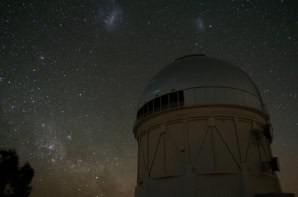Scientists are needed on the Earth, not in space

Next month science ministers from across Europe will meet in Berlin to discuss Aurora – an ambitious plan by the European Space Agency (ESA) to explore the solar system, with Mars and the Moon as the main targets. The first stage of exploration would be done by robots, to be followed by humans after 2015. Costs have not been mentioned yet but they are sure to be astronomical. With the US thinking along similar lines, the first point that needs to be made is that the world does not need two competing programmes for exploring the solar system. Indeed, does the world need even one manned mission to Mars and beyond?
The UK has traditionally been opposed to manned space exploration, which is why the Royal Astronomical Society (RAS) recently asked a commission of three eminent scientists to answer the following question: “Will having people in space materially advance our knowledge, especially of astronomy and geophysics, in ways that are otherwise impossible or less certain?”
None of the commission members – Frank Close of Oxford University (a particle theorist), John Dudeney of the British Antarctic Survey (an ionospheric physicist) and Ken Pounds of Leicester University (an X-ray astronomer) – had strong views on human space exploration. Indeed, if anything, they were sceptical about the scientific value of such projects. It came as a surprise, therefore, to find that they had changed their minds by the time they came to write their report: “We find that profound scientific questions relating to the history of the solar system and the existence of life beyond Earth can best – perhaps only – be achieved by human exploration on the Moon or Mars, supported by appropriate automated systems.”
The commission felt that there were three compelling reasons why the UK should be involved in human space flight: to map the history of the solar system, including the Earth and the Sun, by drilling beneath the surface of the Moon; to search for life on Mars; and to carry out a detailed, planet-wide exploration of Mars. Other reasons included increased interest in science among young people and benefits for industry. Overall the commission reckoned that it would cost the UK about £150m per year for at least 20 years to be involved in such a programme (assuming that it pays for about 15% of any European initiative).
However, the commission’s report can be no more than a first small step in a possible British U-turn about sending humans into space to do science. Before the government commits to spending the enormous sums of money involved, it must conduct a much wider-reaching inquiry into this question. The panel that conducts this inquiry must be bigger and more broad-based. For instance, questions about the best way to explore the origins of life on Earth require input from the life-sciences community. Would the public be so seemingly keen if they knew about the costs involved? Indeed, does the whole astronomy and space-science community buy into the idea? And if the UK – or any other nation for that matter – has an extra £150m per year to spend on a really big science-based problem, what else could it spend the money on? The development of new energy sources that do not harm the environment would seem to be a higher priority. Humans should only do science in space if they can be put there without costing the Earth.



